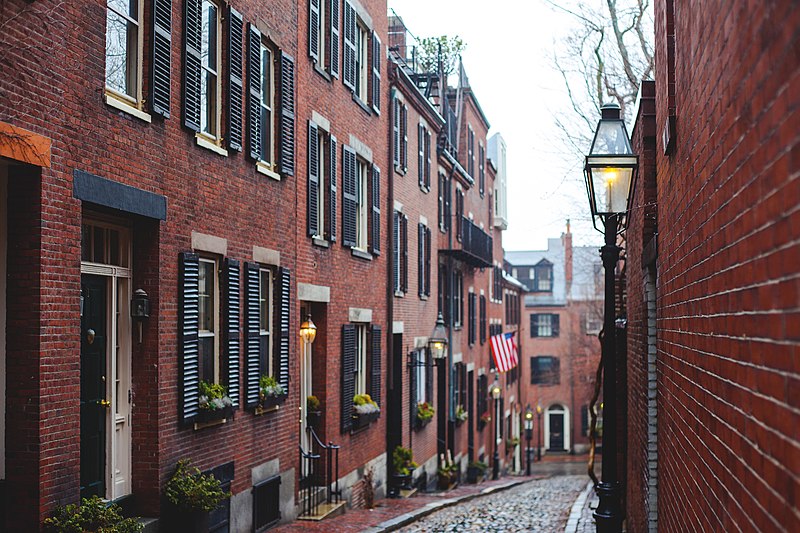 "Acorn Street, Boston, United States (Unsplash)" by Michael Browning is licensed under CC0 1.0 Universal (CC0 1.0)
Public Domain Dedication
https://commons.wikimedia.org/wiki/File:Acorn_Street,_Boston,_United_States_(Unsplash).jpg
"Acorn Street, Boston, United States (Unsplash)" by Michael Browning is licensed under CC0 1.0 Universal (CC0 1.0)
Public Domain Dedication
https://commons.wikimedia.org/wiki/File:Acorn_Street,_Boston,_United_States_(Unsplash).jpg
Three Weeks ago, Mayor Michelle Wu proposed a real estate transfer fee, for the purpose of funding more affordable housing in Boston. While this may sound admirable, good intentions don’t mean good policy. The reality is that real estate transfer taxes are unstable, damage the housing market, and create fewer homes and higher rents, achieving the exact opposite of their stated aim.
On Monday January 31, Mayor Wu filed a home rule petition that, if approved, would levy a transfer tax of up to 2% on real estate sales over $2 million in Boston. Mayor Wu’s administration claims that this tax will bring in $100 million to help finance affordable housing. But will it?
If you want more affordable housing, taxing it is the last thing you want do. If this tax passes, an owner who wishes to sell a $2 million property could have to pay $40,000 more. This additional cost won’t be paid by landlords, it will be paid by renters. Research has shown “conclusively that rents rise after tax changes sufficiently to fully absorb 80-90% of the change in landlord tax payments! This estimate is highly significant statistically.”
In addition to making housing pricier, this bill would make it scarcer. When the cost of a good rises, fewer want to sell it. For real estate, this will translate into less housing development. In other words, instead of making housing more available, this bill would make it less.
Mayor Wu has said that much of the revenue from this tax will go to building affordable housing, but would that be enough to offset the loss in housing this tax causes? According to a report by the National Association of Realtors, “because of their volatility, these taxes and fees are a particularly poor revenue source for the general operating budgets of state and local governments.”
This new tax is another attempt by the government to squeeze more tax dollars from its citizenry and will do more harm than good. Wanting more affordable housing is a good thing, but this is not the way to achieve it. This will result in less housing in general and make existing housing even more expensive. Boston should reject Mayor Wu’s proposal and instead cut burdensome regulations and taxes, letting prices match the market.

